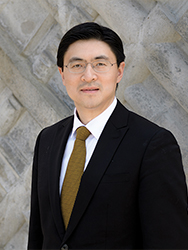This issue of ENGINEERING IMPACT focuses on undergraduate and graduate education.
Whether as a complement to residential learning or as a primary pathway for those seeking online graduate degrees and credentials, we continue to innovate and scale up online education in (1) virtual labs, (2) educational digital twin, and (3) machine learning for human learning. We also continue to scale up the range of degrees and credentials offered and the reach of university/industry partners as well as individual students. And as always, we strive toward maximizing the efficacy and quality of learning online.
Back here on the West Lafayette campus, we have been having conversations about the undergraduate curriculum of each school, department and division. We thank all the instructors, teaching assistants, and advisors who dedicate themselves to the residential learning experience for more than 11,000 undergraduates in our College. One part of these discussions has focused on providing more flexibility and orchestrated electives to students, while innovating pedagogy and technology simultaneously. Another part has focused on coordination and integration with co-curricular activities in GRIT+: Global, Research, Industry, Teamwork and More internship/co-op, project-based learning, and entrepreneurial activities.
We hope to do everything we can in the College to ensure the highest quality of learning. Several schools, including BME, ECE, IE, EEE and ME, have started Agile Reform of Curriculum. For example, in the School of Mechanical Engineering, the new curriculum provides additional choices of ME elective courses and greater flexibility in selecting electives to align with each student’s interest, updates the design-manufacturing sequence, and expands undergraduate research opportunities and participation in the VIP and Milestone programs. You will read more about ARC in the first story of this magazine.
More choices in degrees at Purdue Engineering are also coming. Many faculty and staff have worked hard over the years to add variety to the degrees we offer — from MD/PhD degrees jointly with IU School of Medicine to the engineering component of the Integrated Business and Engineering degree with Krannert School of Management. Beyond ensuring a component of basic literacy in data science in each of the undergraduate degrees, we are launching a Minor in Artificial Intelligence. On the graduate front, in addition to the increase in PhD student stipends and career mentoring workshops last semester, we are adding three new interdisciplinary master’s degree concentrations this semester, reflecting compelling strategic importance or differentiating strength:
- Semiconductors: This is a collaboration across ECE, ME and MSE with additional participation from other schools. It innovates both the content (the end-to-end supply chain) and the pedagogy (using lab-to-fab and online virtual tools) when the semiconductors industry in the U.S. requires 50,000 new engineers this decade.
- Sports Engineering: This concentration is created by the Ray Ewry Center for Sports Engineering, a collaboration between our College and Purdue Athletics in 2019.
- Autonomy/Robotics/IoT: This is coming up soon, as one of the educational dimensions of the Purdue Engineering Initiative (PEI) in Autonomous and Connected Systems.
More than rankings, such as back-to-back top 4 in the U.S., our College continues to educate not only a larger, but also a premier, pool of engineering talents in residence and online through relentless innovation.

Mung Chiang
Executive Vice President for Strategic Initiatives
John A. Edwardson Dean of the College of Engineering
Roscoe H. George Distinguished Professor of Electrical and Computer Engineering
Purdue University
